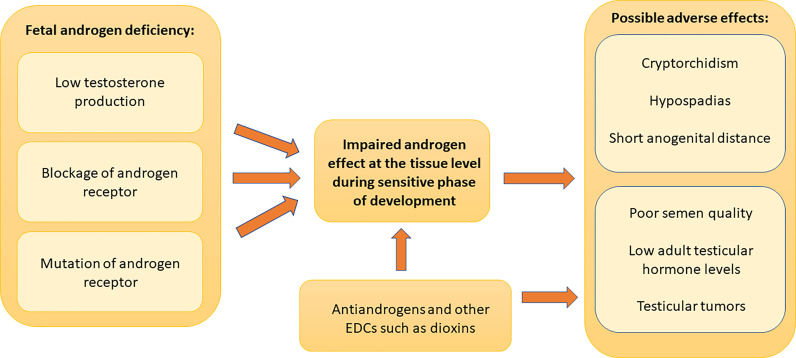Figure 1.
Role of androgen effects in male reproductive disorders. Adequate androgen action during a sensitive period of development in male fetus is important for normal male reproductive organ development and function after birth. The lack of androgen action due to decreased testosterone synthesis, androgen receptor blockade or androgen receptor mutations can cause early or late postnatal male reproductive disorders. Early postnatal manifestations include cryptorchidism, hypospadias and decreased anogenital distance. Late postnatal manifestations consist of reduced semen quality, reduced adult reproductive hormone levels and testicular germ cell tumors. Fetal exposure to chemicals that have antiandrogenic effects can disturb male reproductive system development and can cause these manifestations. These chemicals can also cause postnatal antiandrogenic effects as shown by the direct arrow to the adult manifestations. There are also other possible mechanisms of action, and other endocrine disrupting compounds may also affect reproductive organs. Dioxin is a well-known example of such a chemical.

